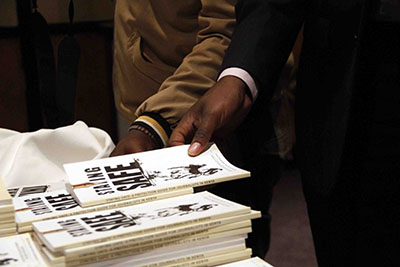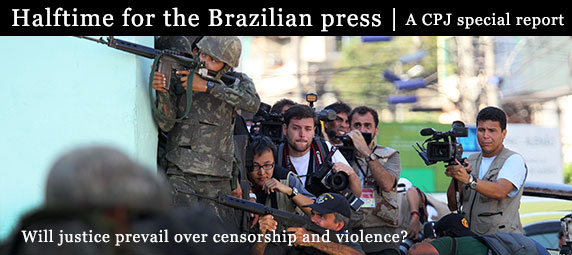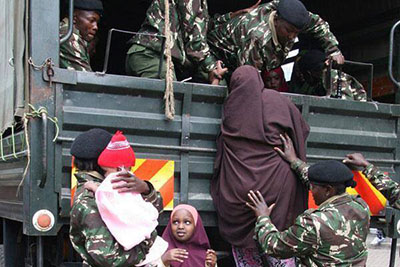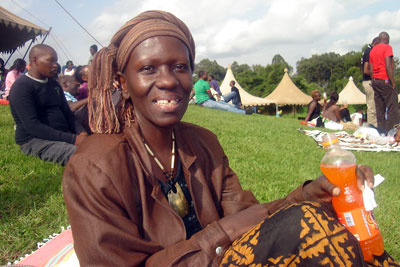
In Kenya, press curbed as government seeks to fight terrorism
The Kenyan press is being caught in the crossfire as authorities seek to strengthen defenses against terrorists. On December 19, Kenya’s president signed into law a security bill that has the power to stop the press covering terror attacks. The government has also recently criticized the media over allegations that special units are carrying out…

Kenyan journalist covering police detained, harassed
Nairobi, November 4, 2014–The Committee to Protect Journalists calls on Kenyan police to stop harassing and threatening a journalist in Kisumu city, western Kenya. Last month, police threatened and briefly detained Justus Ochieng, a reporter for the privately owned daily The Star, in connection with a story he wrote that alleged criminal activity by police…

Kenyan journalists, CPJ launch new initiative to improve security
Today, the Committee to Protect Journalists in collaboration with local media organizations launched a journalist security guide and protocol designed specifically for the Kenyan press. The initiative stems from research conducted in 2013 by the same group of organizations, the Kenya Media Working Group, in light of acute and unique security challenges for the Kenyan…

News from the Committee to Protect Journalists, May 2014
CPJ’s Brazil report spurs government meetings on press freedom CPJ board member María Teresa Ronderos and CPJ Senior Program Coordinator Carlos Lauría traveled to Brasilia this month to launch a new special report, “Halftime for the Brazilian press,” and met with Brazilian President Dilma Rousseff, as well as other high-level government officials. CPJ also presented…
Remembering Camille Lepage
“Not sure I can talk about my ‘career’ just yet–I’m still just getting started!” freelance photographer Camille Lepage told the photography site Petapixel in October 2013.Less than a year later, Lepage’s body was found in a car in the Central African Republic, according to news reports citing the French government. She had been traveling with fighters of…

Kenya must consider plight of refugee journalists
Today, CPJ partnered with Reporters Without Borders and Rory Peck Trust in a joint open letter calling on Kenya’s Cabinet Secretary of Interior, Joseph Ole Lenku, to provide clarity on the government’s refugee policy and to exempt journalists from forced relocation to the refugee camps. On March 25, Lenku ordered all urban refugees to relocate…
CPJ urges free expression be part of post-2015 MDG agenda
Dear Ambassadors Kamau and Kőrösi: I am writing to you in your capacity as the co-chairmen of the Open Working Group on Sustainable Development Goals. Your work and the recommendations of your group will help frame the discussion in the coming year as United Nations member states seek to agree a set of objectives to succeed the Millennium Development Goals beyond 2015. We at the Committee to Protect Journalists (CPJ) believe it is vital that your report to the UN Secretary General Ban Ki Moon later this year include freedom of expression and access to information and independent media as part of the post-2015 agenda.

Forced to flee false perceptions, ICC, and Kenyan press
EDITOR’S NOTE: February 15, 2014 marked one year since Omwa Ombara arrived in the U.S. to seek political asylum after attempts on her life in Kenya between May and December 2012. She fled her native land after being contacted by International Criminal Court (ICC) investigators probing the violence that followed the Kenyan elections in 2007-2008,…
Kenya media, security forces soul search after Westgate
Should journalists expect support and protection from security agents when they risk their lives to report on security operations? What if their coverage could potentially expose military strategies? Why are journalists disparaged as unpatriotic when they show how security operations fail?